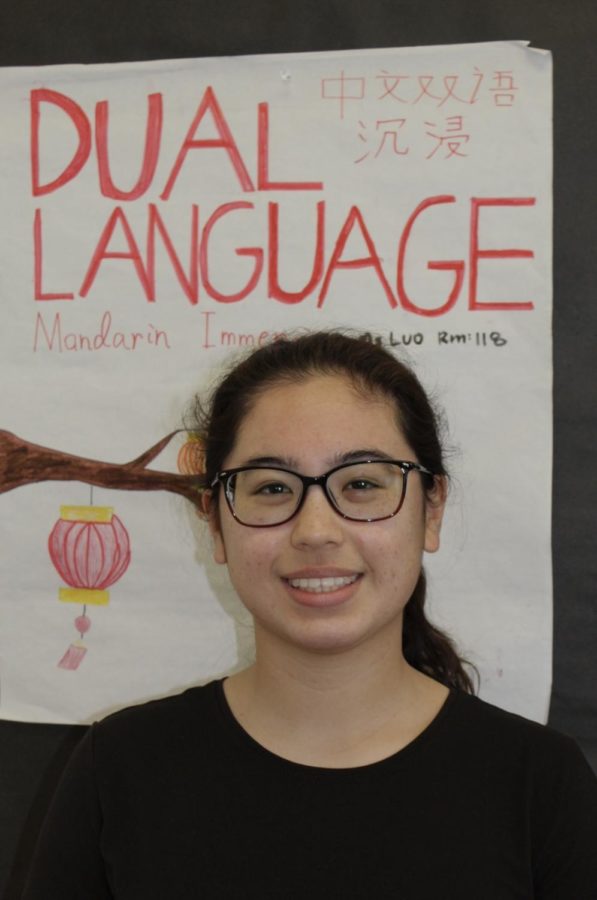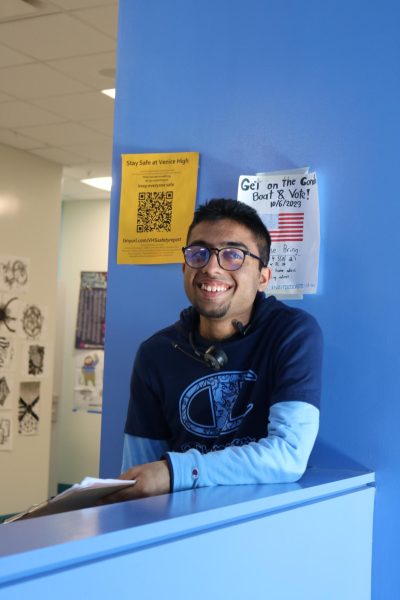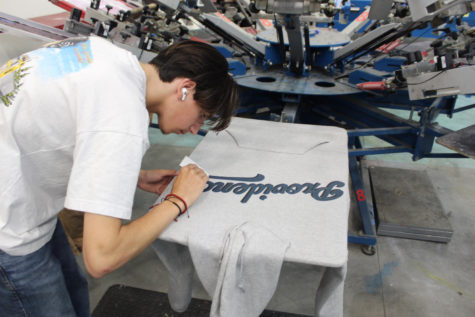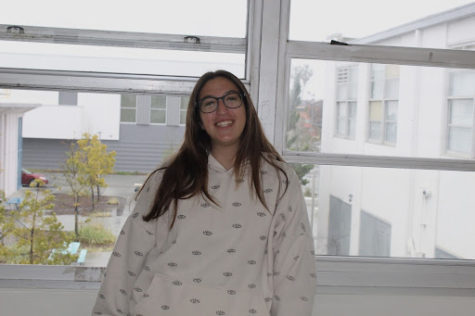Humans of Venice: The First Student To Complete LAUSD’s Mandarin Dual Language Immersion Program
January 27, 2023
Vanessa Uzan is a senior at Venice High School. She is the first to graduate from LAUSD’s Dual Language Immersion program. She’s been learning Mandarin for 12 years now.
Ellie Zamir, the Co-Managing Editor of The Oarsman—Venice High School’s student media publication—talked to Vanessa about her experience in the program.
Essentially how does it feel to be the first 12-year Dual Language graduate? Are you proud?
“Yes, I’m proud, it’s an honor. I feel like I definitely am paving a pathway for the kids in the generation below me. And hopefully, they’ll be able to receive the same kind of education I did.”
Besides learning the Mandarin language, do you feel like you’ve learned more about culture or different perspectives?
“Yes, definitely. And I also feel like I’ve also been exposed to a different kind of teaching technique as well, because in Chinese culture, they have, I would say, more strict teaching techniques. And it’s definitely different from how American teachers teach here. So I am definitely getting more exposure to different kinds of teaching, learning, and culture.”
Have you ever thought about leaving the program? Why didn’t you? Has it ever been hard?
“It became difficult especially in high school because I’ve been in this program since I was in elementary school and I’ve stuck with the same people pretty much my whole life. When we were about to start ninth grade, everyone went to different high schools. Only around five kids ended up continuing to Venice. However, those kids did not continue the program. So it was just me by myself. I had the decision to drop out as they did, or just continue the program. But I knew that if I didn’t continue the program, the kids below me probably would also have to stop too because I was the first year, but it was a sacrifice I made. And I feel like it was definitely worth it.”
Why did you or your family decide to join the program in the first place?
“My mom is Taiwanese—however, she never thought about putting me into school to really enhance my Chinese learning abilities. It’s actually my dad, who told my mom that we need to since we had family in Taiwan. And the only way I can actually speak to them is to actually understand the language. So when he found out that Broadway Elementary School had this Mandarin immersion program, they helped me enroll there. And then I continued to Mark Twain Middle School, and then finally came to Venice High School.”
What are your career aspirations? Mandarin is something you’ve been learning for a long time. How do you plan on incorporating your knowledge of the language in your future?
“I feel like Mandarin has really helped me explore different career options. Right now, my plan is to go to the Naval Academy. And hopefully, when I do my service years, I can become something called an FAO, which is a foreign area officer. And this job consists of being stationed in a foreign country, and I work at the embassy. I get to interact with people using my biliterate skills. And I feel like it’s definitely something that I’m really passionate about.”
What is the value of being bilingual? Or having a bilingual education? For example, in Spain, most students learn a foreign language like English in elementary school, just like you did. But here, it’s more common that students only learn a language in high school if at all. Do you think learning another language should be encouraged by schools countrywide? What do you feel is the value of being bilingual and having a bilingual education?
“I definitely feel that schools should incorporate a second language into a student’s education at a younger age. I know there’s something called a critical point. And it’s like after you reach that age, it’s harder to learn a language. So if students can start learning a language earlier, I definitely feel like it’ll benefit them. And also, like I said before, you get can get more exposure to different kinds of cultures. And when you get older, you have more options to explore more things.”
What is your favorite thing about knowing Mandarin?
“I can talk from like personal experience. I think because when someone looks at me I don’t look completely Chinese. I do look mixed. So whenever I go to like Taiwan, for instance, and I start talking to the locals there, it’s just kind of exciting to see how they react. Some of them are very surprised. I think that’s something that is really cool about knowing a second language. I am able to connect with family through knowing Mandarin.”





